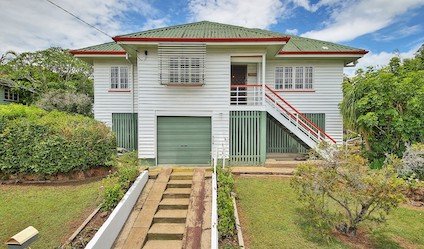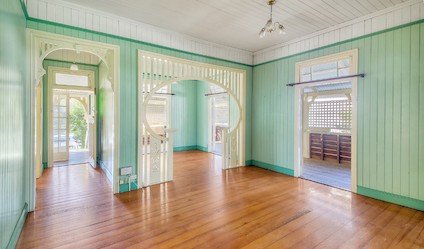So, you’ve found the property that’s right for you. How do you research what you should pay and avoid paying too much?
The best way to research how much you should pay for a property is by doing some comparative market research on recently sold properties. When you begin to research sold properties make sure you’re comparing apples with apples. Stay close to your target property’s location and make sure the surroundings are similar. If your property is on a quiet back street, don’t compare it with another that’s on a main road.
Get your comparable statistics right:
Keep a list of sold properties and make your own notes – you may even find it helpful to drive past some of these to be sure they are comparable with your target property (driving around the area is always a good idea, especially if it’s new to you).
Part of life in the river city of Brisbane is the possibility of flooding. Make sure you check the Brisbane City Council’s Floodwise property report so you know all there is to know about your new place.
Researching prices based on what has sold is the number one way to figure out pricing. Alternative methods include looking at the sold sections of the property portals or using a property research tool like the one supplied by Core Logic to check a property’s value.
A large majority of buyers will agree to purchase a home subject to certain conditions, the most popular of which are the building and pest inspection. A building inspection will reveal any and all flaws in the property so that you know exactly what you’re purchasing. The pest inspection is a separate report and an important one, especially for our Queensland timber and tin homes.
Based on the results of the building and pest inspections, a buyer has the option to take minor flaws in their stride, factor major repairs into their purchase price offer, or in the worst case, can the deal altogether if the purchase is subject to a satisfactory report.
If you’re purchasing a unit or townhouse that is strata titled, then a search of the body corporate records will also form part of the property inspection process.
A few days before you settle on the property you can personally conduct a final inspection to ensure that the property is in the same condition it was in when you agreed to purchase it.
The cooling-off period applies to private treaty sales, and a standard contract of sale comes with a 5-business day cooling –off period. This means that if you change your mind about the sale within that time-fame, you may cancel the sale. Auction sales do not have a cooling off period.
The cooling off period starts when you receive a copy of the contract signed by both parties (seller and buyer). If you get the contract on a weekend day, the cooling off period will start on the next business day. Cooling –off ends at 5pm on the fifth day.
If you wish to cancel the sale during this time, your notice must be in writing with your signature and delivered to the agent. The seller or agent will then refund your deposit within 14 days but they are entitled to deduct a penalty of up to 0.25% of the purchase price.
Honest & Trustworthy
Russell is honest, trustworthy and importantly, knows the market.
Dealing with such a warm and friendly family in the real estate business was quite unique and a real bonus!
Find out more about how to sell with Matthews

Very In-depth Knowledge
Russell and Trevor have very in-depth knowledge of the areas they operate in, and they are well connected to the local community.
Russell was a pleasure to deal with on our purchase and is highly recommended.
Find out more about how to sell with Matthews

Easy To Work With
Russell was an outstanding agent. He was professional, honest, easy to work with, and incredibly helpful both before and after we bought our house.
Russell has great knowledge of the area and was able to provide us with very useful information that helped up make our decision to buy. I would have no hesitation recommending Russell; if we ever sell we will definitely be using him.
Find out more about how to sell with Matthews

